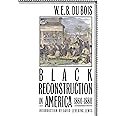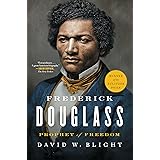
Enjoy fast, free delivery, exclusive deals, and award-winning movies & TV shows with Prime
Try Prime
and start saving today with fast, free delivery
Amazon Prime includes:
Fast, FREE Delivery is available to Prime members. To join, select "Try Amazon Prime and start saving today with Fast, FREE Delivery" below the Add to Cart button.
Amazon Prime members enjoy:- Cardmembers earn 5% Back at Amazon.com with a Prime Credit Card.
- Unlimited Free Two-Day Delivery
- Streaming of thousands of movies and TV shows with limited ads on Prime Video.
- A Kindle book to borrow for free each month - with no due dates
- Listen to over 2 million songs and hundreds of playlists
- Unlimited photo storage with anywhere access
Important: Your credit card will NOT be charged when you start your free trial or if you cancel during the trial period. If you're happy with Amazon Prime, do nothing. At the end of the free trial, your membership will automatically upgrade to a monthly membership.
Buy new:
-44% $14.59$14.59
Ships from: Amazon.com Sold by: Amazon.com
Save with Used - Good
$4.71$4.71

Download the free Kindle app and start reading Kindle books instantly on your smartphone, tablet, or computer - no Kindle device required.
Read instantly on your browser with Kindle for Web.
Using your mobile phone camera - scan the code below and download the Kindle app.

OK
Reconstruction Updated Edition: America's Unfinished Revolution, 1863-1877 (Harper Perennial Modern Classics) Paperback – Illustrated, December 2, 2014
Purchase options and add-ons
From the "preeminent historian of Reconstruction" (New York Times Book Review), the prize-winning classic work on the post-Civil War period that shaped modern America.
Eric Foner's "masterful treatment of one of the most complex periods of American history" (New Republic) redefined how the post-Civil War period was viewed.
Reconstruction chronicles the way in which Americans—black and white—responded to the unprecedented changes unleashed by the war and the end of slavery. It addresses the ways in which the emancipated slaves' quest for economic autonomy and equal citizenship shaped the political agenda of Reconstruction; the remodeling of Southern society and the place of planters, merchants, and small farmers within it; the evolution of racial attitudes and patterns of race relations; and the emergence of a national state possessing vastly expanded authority and committed, for a time, to the principle of equal rights for all Americans.
This "smart book of enormous strengths" (Boston Globe) remains the standard work on the wrenching post-Civil War period—an era whose legacy still reverberates in the United States today.
- Print length752 pages
- LanguageEnglish
- PublisherHarper Perennial Modern Classics
- Publication dateDecember 2, 2014
- Dimensions1.7 x 5.9 x 8.9 inches
- ISBN-100062354515
- ISBN-13978-0062354518
The Amazon Book Review
Book recommendations, author interviews, editors' picks, and more. Read it now
Frequently bought together

Similar items that may ship from close to you
 By the war’s end, some 180,000 blacks had served in the Union Army—over one fifth of the nation’s adult male black population under age forty-five.Highlighted by 423 Kindle readers
By the war’s end, some 180,000 blacks had served in the Union Army—over one fifth of the nation’s adult male black population under age forty-five.Highlighted by 423 Kindle readers A second purpose of this study is to trace the ways in which Southern society as a whole was remodeled, and to do so without neglecting the local variations in different parts of the South.Highlighted by 380 Kindle readers
A second purpose of this study is to trace the ways in which Southern society as a whole was remodeled, and to do so without neglecting the local variations in different parts of the South.Highlighted by 380 Kindle readers Finally, this study examines how changes in the North’s economy and class structure affected Reconstruction.Highlighted by 379 Kindle readers
Finally, this study examines how changes in the North’s economy and class structure affected Reconstruction.Highlighted by 379 Kindle readers
Editorial Reviews
Review
"This is history written on a grand scale, a masterful treatment of one of the most complex periods of American history." — New Republic
“The [book’s] rewards stem from Foner’s deep understanding of the literature of the period and his ability to draw freely from it, so that his arguments sprout in deep soil; and from his disciplined imagination, which neither approves nor condemns, but characterizes, and at its best dramatizes situations, preserving and savoring their possibilities, so that the betrayal of Reconstruction with a terrible poignancy.” — Theodore Rosengarten, The Nation
"With this book, Mr. Foner becomes the preeminent historian of Reconstruction." — New York Times Book Review
"[Reconstruction] may very well turn out to be this generation's defining interpretation of this most misunderstood passage in the nation's history." — Wall Street Journal
"A remarkable clarity is one of the many beauties of this book that dwells on so many conflicts and ambiguities . . . Foner's Reconstruction is a smart book of enormous strengths." — Boston Globe
“Eric Foner has put together this terrible story with greater cogency and power, I believe, than has been brought to the subject heretofore.” — New York Review of Books
“Foner’s book traces in rich detail the bitter course of the history of the South’s failure to adjust to the revolution that brought the Civil War. Only by tracing that history and understanding can the region fully disenthrall itself even today. No book could be more timely. ” — Atlanta Constitution
“Foner’s book brings to distinguished fruition one great cycle of Reconstruction historiography.” — New York Review of Books
From the Back Cover
With a New Introduction
From the "preeminent historian of Reconstruction" (New York Times Book Review), a newly updated edition of the prizewinning classic work on the post-Civil War period that shaped modern America
Eric Foner's "masterful treatment of one of the most complex periods of American history" (New Republic) redefined how the post–Civil War period was viewed.
Reconstruction chronicles the way in which Americans—black and white—responded to the unprecedented changes unleashed by the war and the end of slavery. It addresses the quest of emancipated slaves searching for economic autonomy and equal citizenship, and describes the remodeling of Southern society, the evolution of racial attitudes and patterns of race relations, and the emergence of a national state possessing vastly expanded authority and committed, for a time, to the principle of equal rights for all Americans.
This "smart book of enormous strengths" (Boston Globe) remains the standard work on the wrenching post–Civil War period—an era whose legacy still reverberates in the United States today.
About the Author
Eric Foner is DeWitt Clinton Professor of History at Columbia University and the author of several books. In 2006 he received the Presidential Award for Outstanding Teaching at Columbia University. He has served as president of the Organization of American Historians, the American Historical Association, and the Society of American Historians. He lives in New York City.
Product details
- Publisher : Harper Perennial Modern Classics; Updated edition (December 2, 2014)
- Language : English
- Paperback : 752 pages
- ISBN-10 : 0062354515
- ISBN-13 : 978-0062354518
- Item Weight : 2.31 pounds
- Dimensions : 1.7 x 5.9 x 8.9 inches
- Best Sellers Rank: #51,348 in Books (See Top 100 in Books)
- #32 in Government Social Policy
- #125 in History & Theory of Politics
- #427 in U.S. State & Local History
- Customer Reviews:
About the author

Eric Foner is DeWitt Clinton Professor of History at Columbia University, where he earned his B.A. and Ph.D. In his teaching and scholarship, Foner focuses on the Civil War and Reconstruction, slavery, and nineteenth-century America. His "Reconstruction: America’s Unfinished Revolution, 1863–1877," won the Bancroft, Parkman, and Los Angeles Times Book prizes and remains the standard history of the period. In 2006 Foner received the Presidential Award for Outstanding Teaching at Columbia University. He has served as president of the Organization of American Historians, the American Historical Association, and the Society of American Historians. He is currently writing a book on Lincoln and slavery.
Customer reviews
Customer Reviews, including Product Star Ratings help customers to learn more about the product and decide whether it is the right product for them.
To calculate the overall star rating and percentage breakdown by star, we don’t use a simple average. Instead, our system considers things like how recent a review is and if the reviewer bought the item on Amazon. It also analyzed reviews to verify trustworthiness.
Learn more how customers reviews work on Amazon-
Top reviews
Top reviews from the United States
There was a problem filtering reviews right now. Please try again later.
I was impressed by Foner's meticulous documentation of the factual developments he discusses. For the most part, Foner lets the facts speak for themselves. Although he has an analytical framework, his interpretation is informed more by historical facticity than by a preconceived ideological orientation. His extensive knowledge of the facts on the ground is remarkable. This work clearly represents a lifetime of study of these decades of American history.
One thread that runs through this work is the influence of classical liberalism and its intellectual precursors on Reconstruction and beyond. I recently read C. B. Macpherson's The Political Theory of Possessive Individualism: Hobbes to Locke, a book written by a Canadian professor that did not address American history. Macpherson focused on the seventeenth-century English philosophers and thinkers who formed, as it were, the intellectual basis of the later laissez-faire theories of Adam Smith and his contemporaries in the eighteenth-century Enlightenment. Macpherson demonstrated that these seventeenth-century thinkers (Thomas Hobbes, the Levellers, James Harrington, and John Locke) considered those who earned wages—as distinguished from self-employed artisans, business people, independent farmers, and great landholders—as almost subhuman creatures not entitled to participate in the electoral franchise. I might add that a residue of this way of thinking is the fact that the employer-employee relationship is still called the "master-servant" relationship in the employment law of many American states. This may also have something to do with Thomas Jefferson's famous preference for independent rural "yeomen" over denizens of cities.
Fast-forward to the mid-nineteenth century. The Republican Party, of which Abraham Lincoln was the first president, originally opposed slavery and later supported civil and even political (electoral) rights for African Americans. The Republicans of that time brought us not only the elimination of legal slavery (the Thirteenth Amendment to the US Constitution) but also citizenship, due process, and equal protection of the law (Fourteenth Amendment) for African Americans and other residents of the United States. The Fifteenth Amendment recognized that African American males could not be denied the right to vote on the basis of their race. But these developments were largely motivated, and limited, by classical liberal concepts. Thus, although most "Radical Republicans" of the Reconstruction era favored equal legal rights for African Americans, their willingness to use the federal government to help African Americans was mostly restricted to formal legal equality. In the face of the post-Civil War reign of terror of the Ku Klux Klan and its successors, Republican politicians came to tire of extraordinary federal governmental intervention to protect blacks and ensure that they would be treated equally before the law.
In another iteration of classical liberalism, many former slaves wanted the federal government to break up the large plantations and redistribute the land among the freedmen. They thought, on the basis of both practical considerations and the dominant classical liberal thinking, that they could not really be free until they were liberated not only from slaveholders but also from employers (often, their former masters). The Republican Party as a whole was not willing to go this far. Instead, the party, under the titular leadership of President Ulysses Grant, descended into a complicated morass of political corruption. Some of the former Radical Republicans came to believe that such corruption was a result of the overinvolvement of the federal government in Reconstruction as well as crony capitalism in the form of governmental subsidization of railroads and other "capitalistic" enterprises, not to mention protective tariffs. Leading political, economic, and social figures even advocated a return to property qualifications for the franchise. They saw the extension of the vote to nonpropertied classes—including but not limited to the freedmen—as having led to the pervasive corruption that characterized the late 1860s and 1870s. They also felt that the political leadership of the "best men" (in their view, the large plantation owners in the South and the industrialists in the North) would be impossible as long as the franchise was not restricted to voters with substantial assets.
Then came the Panic of 1873 and ensuring depression—the worst economic downturn that the nation experienced before the 1929 crash. By this time, thanks in part to governmental favors, large corporate enterprises were beginning to dominate entire industries, and a permanent wage-earning class was established, often peopled by immigrants. These developments inaugurated an extended period in which laborers demanded certain legal protections (the eight-hour day, abolition of child labor, the right to unionize, and so forth) that the dominant industrialists considered communistic. The first of many "Red Scares" occurred at this time, motivated in part by news of the Marxian Paris Commune of 1871.
Accordingly, industrialization during and after the Civil War—caused not only by natural economic forces but also by deliberate Republican policies of special governmental favors to railroads and industry—became for the first time a permanent fixture in the American political economy. Along with industrialization came the political conflicts that characterized later decades of American political history.
The present review can only touch on a few of the many themes that Eric Foner elaborates in his groundbreaking book on Reconstruction. The work is breathtaking in its scope and in its dexterous handling of a multitude of factual developments during the Reconstruction era. Every serious student of American history should read it.
I admit I'm only on page 9 of 612 but it's already obvious that this is a very readable and very informative book. And a shout out for footnotes on each page instead of in the back. YES! There should be a law requiring it.
I will review the entire book when I'm done (at least several weeks) but if you are on the fence with this book, get off and start clicking. It's a good read.
The preface and introduction to the book make the argument that prior books on the Reconstruction era were tainted by biased recollections, that the Black population was lazy and incompetent and unwilling to raise its standard of living, but Foner’s book refutes this by revealing how things were at the most local and individual level.
Sure the book is long, but his writing and research and organization are absolutely flawless. Foner draws from a wealth of local, primary sources. For a month, I looked forward to reading the next section. I liked that the book was broken into approximately 10-page essays within each chapter.
As a telling side comment, since most of the documentation and storyline is what happens at the state and local level, Presidents Johnson and Grant seem remote. Additionally, the disputed election of 1876 in which President Hayes was elected was consequential for the removal of Federal troops from the South, yet this also seems remote in Foner’s narrative.
Top reviews from other countries
But political rights were nevertheless enormously valued- black voter turnout surged in every part of the south. For the first time there were black sheriffs, police officers, and state/local officials with real power. The white planter elite was sidelined from leadership positions. Most of the Reconstruction-era South managed to resist KKK/Democrat violence to elect Ulysses Grant in 1868 and 1872.
Perhaps Foner's most important contribution is debunking the Dunning School' view of the failings of Reconstruction. Reconstruction did not end due to blacks' incompetence or venality. Black politicians were the clear junior partners in Reconstruction, except perhaps for a brief period in ~1870s Louisiana and South Carolina. Rather, white elites from both parties had the lion's share of responsibility. Reconstruction governments' corruption largely involved white-run railroads and a mostly-white political leadership, both Democrat and Republican. This corruption was also no worse than that seen in the North or West at this time, where political machines and businesses worked hand-in-glove. Corruption played a smaller role than white southerners' rage at 'illegitimate' 'Africanised' rule. Apart from some areas inhabited by working-class white 'Scallywag Republicans', the white South largely supported the supremacist Democrat party. Democrats feigned moderation at times, but their extensive use of the KKK to terrorise blacks and Scallywags revealed the truth. The planter elite managed to 'redeem' the South one state at a time, employing the twin tactics of violence and white solidarity propaganda. Republican state governments were overthrown in blatant coups or through intimidation. Southern Whigs had thrown their support behind the Democrats from the start. After 'Redemption', even a few disaffected Scallywag leaders joined the reestablished Democrat elite.
Foner seals his claim for the greatest Reconstruction historian by outlining in detail the Northern Republicans' betrayal of the black south. Without this betrayal, the 'redemption' could not have succeeded throughout the South. Despite dispatching federal troops to stem KKK violence during his first term, President Grant meekly acquiesced to the growing voices in his party who favoured reconciliation with the South and the planter elite. These Republicans were often fuelled by class anxiety over growing labour agitation in the North. Working-class movements and unions spiked after the 1873 economic crisis, which halted the North's Whiggish transformation into an expanding economic powerhouse. Soon the majority of Republicans, including multiple abolitionists, took up the mantra that black Americans were incapable of progress and Reconstruction must end. Their commitment to an activist central state collapsed. The 1876 election compromise that ended the last standing Reconstruction governments was seen as almost inevitable at the time. White northern elites, especially the business community, abandoned their most loyal constituents. They focused instead on stopping union mobilisation, while also dabbling with imperial expansionism, anti-'communism', anti-Chinese sentiment, and temperance movements. The voices of the last remaining Radical Republicans were drowned out. Charles Sumner died while trying to pass a civil rights bill, while the anti-racist pro-labour Wendell Philipps and Benjamin Butler were marginalised. The Radical ideology itself, which once controlled the party and had helped begin Reconstruction by overruling the pro-reconciliation Andrew Johnson, died out. Johnson, who advocated white supremacy and a white yeomen-planter alliance to rule a readmitted south, got his wish in the end. The resurgence of an elitist caste system was euphemised as an exercise of states' rights and self-government.
But the fact that Reconstruction lasted for years shouldn't be forgotten. The ascension of blacks to Congress and Lt. Governor positions was historic. One comes away thinking that Lincoln-like leadership and political will from white elites could have prolonged the 'Forgotten Revolution'. Unfortunately, it would take another 90 years for such a state of affairs to happen again











